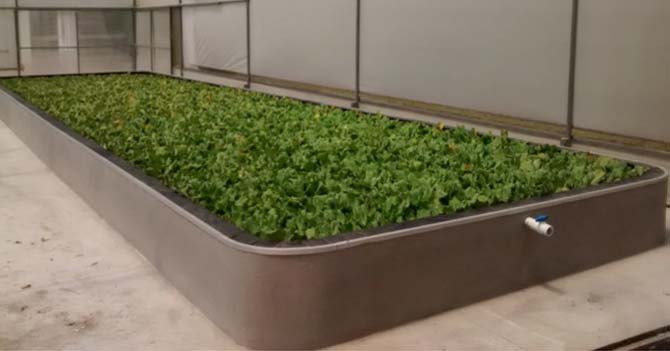Mexican scientists from Xalapa, Veracruz, in collaboration with colleagues from Spain and Italy, have created a biorefinery for wastewater treatment using microalgae, which produces high added value biomass for the creation of biofuels.
According to World Bank data, 90 percent of the energy used in Mexico is produced with fossil fuels, a number that is expected to be reduced down to 65% by the year 2024, reason why the biofuels have become a viable alternative.
![]()
The project was created in 2012 with the aim of producing biogas, biodiesel and hydrogen from microalgae and domestic wastewater, and although it’s still in pilot tests, it is expected to obtain positive results in the near future.
Original Image byConacyt, used under CC BY 4.0 license, via Agencia Informativa Conacyt.
This operation is based on a sustainable system that includes a lagoon phyto-treatment water from the Sordo River in Veracruz, which has been classified as highly contaminated, this generates phyto-treated water that allows the cultivation of microalgae capable of accumulating lipids in their cells, in order to obtain biodiesel.
The biorefinery is installed inside a greenhouse of 400 square meters and consists of three modules: the first is a phyto-filtration lagoon with a capacity of 13 thousand liters and serves as a model for developing other projects in Mexico and Latin America to treat contaminated waters with domestic wastewater using aquatic plants.
Original Image byConacyt, used under CC BY 4.0 license, via Agencia Informativa Conacyt.
The plant used, called water lettuce, efficiently removes contaminants from water acting as a natural filter that absorbs the excess of nutrients.
The second module consists in converting the biomass obtained in the first to produce biogas and hydrogen, and in the third Phyto-filtrated microalgae are grown using water and other nutrients, thus contributing to agro-industrial wastewater treatment.
Original Image byConacyt, used under CC BY 4.0 license, via Agencia Informativa Conacyt.
This model of biorefinery is unique nationally and internationally, and biofuels derived from microalgae have several advantages, as they can be grown in wastewater, they leave a small footprint, its oil yield is 100 to 200 times the derived from soybean oil and it produces no carbon dioxide during its life cycle production.
The biorefinery in Xalapa is sustainable because it uses no water for agricultural irrigation as a source of nutrients, unlike existing ones that are designed to produce ethanol from sugar cane.
Original Image byConacyt, used under CC BY 4.0 license, via Agencia Informativa Conacyt.
This project has a dual purpose that benefits the environment, because on one hand it contributes to the remediation of contaminated rivers, and on the other hand it generates biofuels that in their production and consumption do not produce CO2 during combustion.
Finally, this source of biofuels can be used to produce biodiesel, bioethanol, biomethanol and biohydrogen, plus some of its derivatives may also have applications in pharmaceuticals, aquaculture, food supplements or cosmetics.



